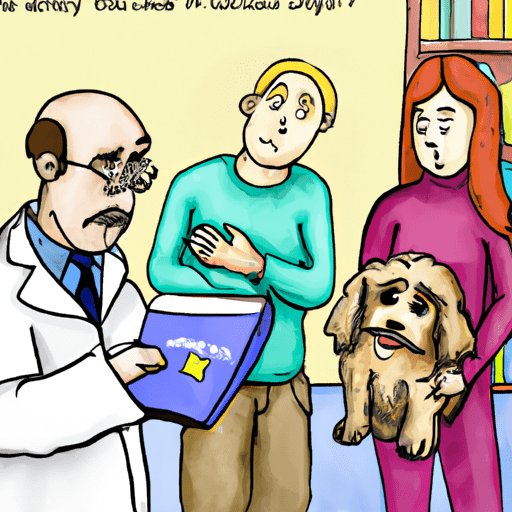Understanding Diarrhea in Dogs
Firstly, you need to understand that diarrhea is not a disease in itself but rather a symptom of various underlying health problems. It can occur for a myriad of reasons – from something as simple as a change in diet to more complex health issues like pancreatitis or parasites. Diarrhea is characterized by loose or watery stools, and if you’re a caregiver to a furry friend, it can be distressing to witness.
The Common Culprits
Let’s get to the root of the problem. Here are some of the most common causes that could be troubling your canine companion:
- Dietary indiscretion: Dogs are curious by nature and often ingest things they shouldn’t. This could range from garbage to foreign objects, resulting in an upset stomach.
- Change in diet: If you’ve recently switched your dog’s food, they might experience diarrhea as their body adjusts to the new diet.
- Food intolerance or allergies: Just like humans, dogs can be allergic or intolerant to certain foods, causing digestive issues.
- Parasites: Internal parasites like hookworms, roundworms, or whipworms can cause diarrhea.
- Infections: Bacterial, viral, or fungal infections can also lead to digestive problems in dogs.
The Importance of Hydration
It’s crucial to remember that dehydration is a significant risk associated with diarrhea. Dogs can lose a lot of fluids and electrolytes quickly, which can be life-threatening. It’s essential to ensure your dog is drinking plenty of water. If they’re showing signs of dehydration, such as lethargy, dry gums, or increased heart rate, it’s time to seek veterinary care immediately.
Navigating the Treatment Landscape
The treatment for diarrhea in dogs largely depends on the underlying cause. For instance:
- For dietary indiscretion, your vet might recommend a bland diet for a few days.
- If parasites are the cause, they’ll prescribe the appropriate deworming medication.
- In the case of infections, antibiotics or antifungal medications may be needed.
Preventing Diarrhea in Dogs
Prevention is always better than cure. Here are some steps you can take to prevent diarrhea in your dog:
- Provide a balanced and consistent diet.
- Regularly deworm your dog.
- Keep your dog’s environment clean and free from harmful bacteria.
- Regular vet check-ups to catch potential problems early.
Frequently Asked Questions
Q: How long does diarrhea last in dogs?
A: Mild cases of diarrhea may resolve within a day or two. However, if it persists for more than two days, it’s important to seek veterinary attention.
Q: Can I give my dog human medication for diarrhea?
A: No, it’s not safe to give your dog human medication unless instructed by a vet.
Q: When should I take my dog to the vet for diarrhea?
A: If your dog’s diarrhea is accompanied by other symptoms like vomiting, loss of appetite, lethargy, or if it lasts for more than two days, it’s time to take them to the vet.
Q: Can diarrhea in dogs be prevented?
A: While not all causes of diarrhea can be prevented, maintaining a consistent diet, regular deworming, and regular vet check-ups can help reduce the risk.



